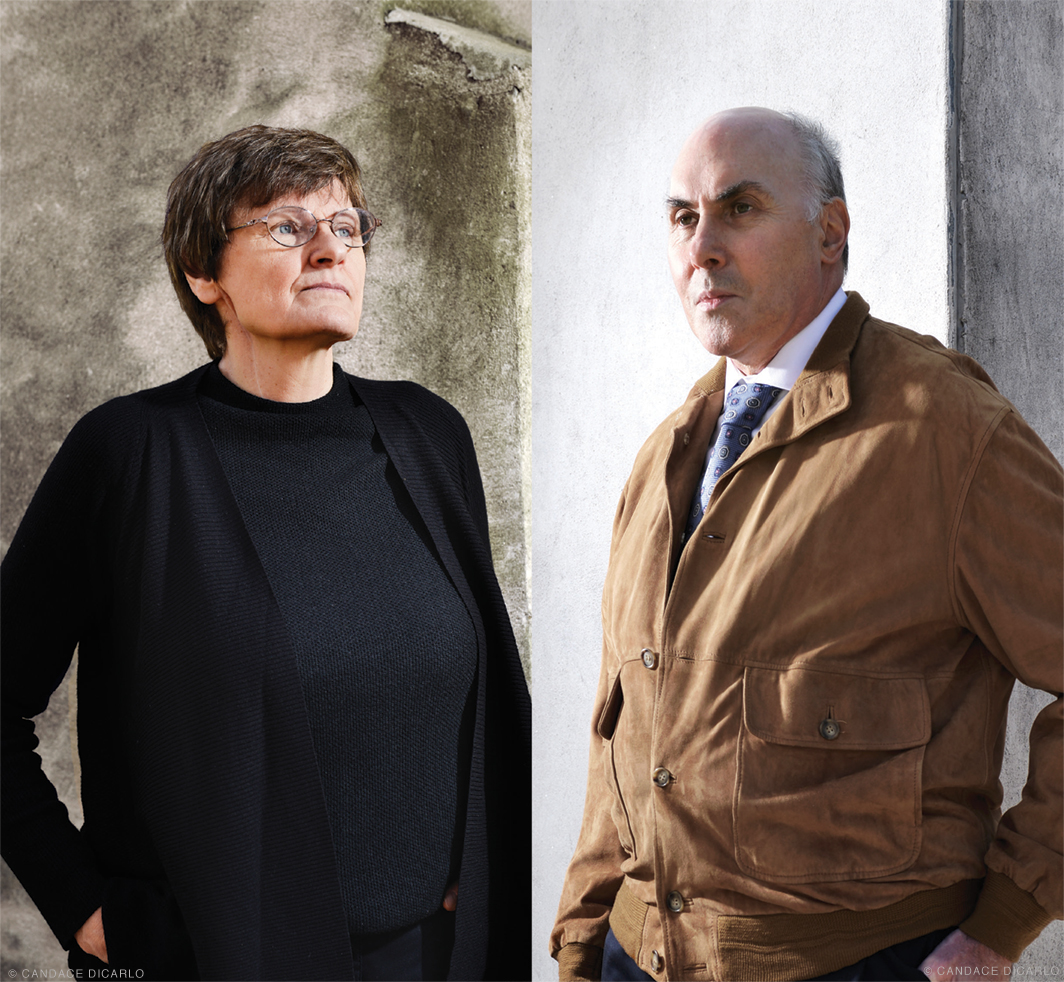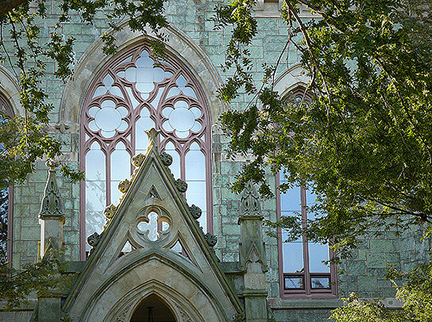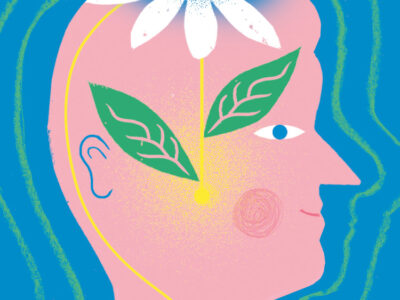
Katalin Kariko and Drew Weissman won this year’s Nobel Prize for research that led to the development of mRNA COVID-19 vaccines.
Decades ago, after a chance meeting at a copy machine, Drew Weissman and Katalin Kariko joined forces at Penn to research messenger RNA (mRNA), even though we “couldn’t get funding, we couldn’t get publications, we couldn’t get people to notice it as something interesting,” Weissman recounted at a University press conference in early October. “It had failed clinical trials. And pretty much everybody gave up on it.
“But Katy lit the match and we spent the rest of our 20-plus years working together figuring out how to get it to work, how to get a vaccine to function well.”
The results surpassed anything they could have imagined: a powerful vaccine against COVID-19 that saved millions of lives [“The Vaccine Trenches,” May|Jun 2021] and, more recently and more to their surprise, the 2023 Nobel Prize in Physiology or Medicine. On October 2, Weissman and Kariko were jointly awarded that honor less than three years after their mRNA research enabled the lifesaving vaccines to be rapidly developed and rolled out during the COVID-19 pandemic, becoming the 28th and 29th Nobel laureates affiliated with Penn (including nine others who have won the Nobel Prize in Medicine).
The Nobel Assembly at the Karolinska Institute in Sweden declared that through work that “fundamentally changed our understanding of how mRNA interacts with our immune system, the laureates contributed to the unprecedented rate of vaccine development during one of the greatest threats to human health in modern times.”
Kariko, an adjunct professor of neurosurgery in Penn’s Perelman School of Medicine, came to Penn in 1989 and met Weissman, the Roberts Family Professor of Vaccine Research in the Perelman School of Medicine, eight years later while photocopying research papers. (“Maybe you have to get more copy machines,” Kariko joked during the press conference celebrating the Nobel Prize.) In 2005 they published a key discovery that mRNA could be altered and delivered effectively into the body to activate the immune system. When the pandemic struck, both Pfizer/BioNTech and Moderna utilized Kariko and Weissman’s technology to build their vaccines to protect against severe illness and death from the virus. (Kariko worked as a vice president for BioNTech from 2013 to 2022 after leaving her position as a researcher at Penn following a demotion from the tenure track.) In the US alone, more than 655 million doses of mRNA vaccines have been administered since they became available in December 2020.
“Day after day, Dr. Weissman, Dr. Kariko and their teams worked tirelessly to unlock the power of mRNA as a therapeutic platform, not knowing the way in which their work could serve to meet a big challenge the world would one day face,” Penn President Liz Magill said in a statement. “With the truest devotion to their field, they’ve already promised they will not stop here, and that is the greatest inspiration of all.”
When asked about future uses for mRNA technology, Weissman pointed to ongoing clinical trials on vaccines for cancer, autoimmune diseases, allergies, and more. “This isn’t a new thing. Since COVID and all the attention, we’ve been able to tell the world about what we’re doing,” said Weissman, adding that he and Kariko recognized the enormous potential as far back as 1997 when he arrived at Penn. “And that’s why we never gave up. We just kept persevering and kept working at it. And here we are today.”
Both Weismann and Kariko laughed that they thought they were being pranked when Thomas Perlmann, secretary of the Nobel Committee, tried to call them while they were sleeping to inform them of their prize. They had good reason for caution: usually more time has passed between a big finding and recognition from the Nobel Foundation, which since 1901 has awarded prizes to those whose breakthroughs have “conferred the greatest benefit to humankind.” And Kariko is just the 13th woman (among 227 recipients) to be awarded the Nobel Prize in Physiology or Medicine, and the first since 2015.
Reflecting on that accomplishment and offering advice to other women making their way in science, the Hungarian-born Kariko said it’s important to find the right spouse to “support your dreams,” as well as paying attention to your own mental and physical health and having fun. “If you don’t enjoy what you’re doing, then you shouldn’t do it,” she said. “If you like to solve problems, then science is for you.”
Weissman concurred and urged more young people to go into science and academia, especially those who like to investigate new things. “We need to encourage our children, our grandchildren, our neighbors—everybody—that science is what moves the world forward,” he said.
Following the press conference, Weissman and Kariko headed over to Smilow Commons Lobby at the Perelman Center for Advanced Medicine, where a “flash mob” of well-wishers from Penn Medicine toasted them—a joyfully crowded moment made possible by the vaccines they helped create. —DZ




